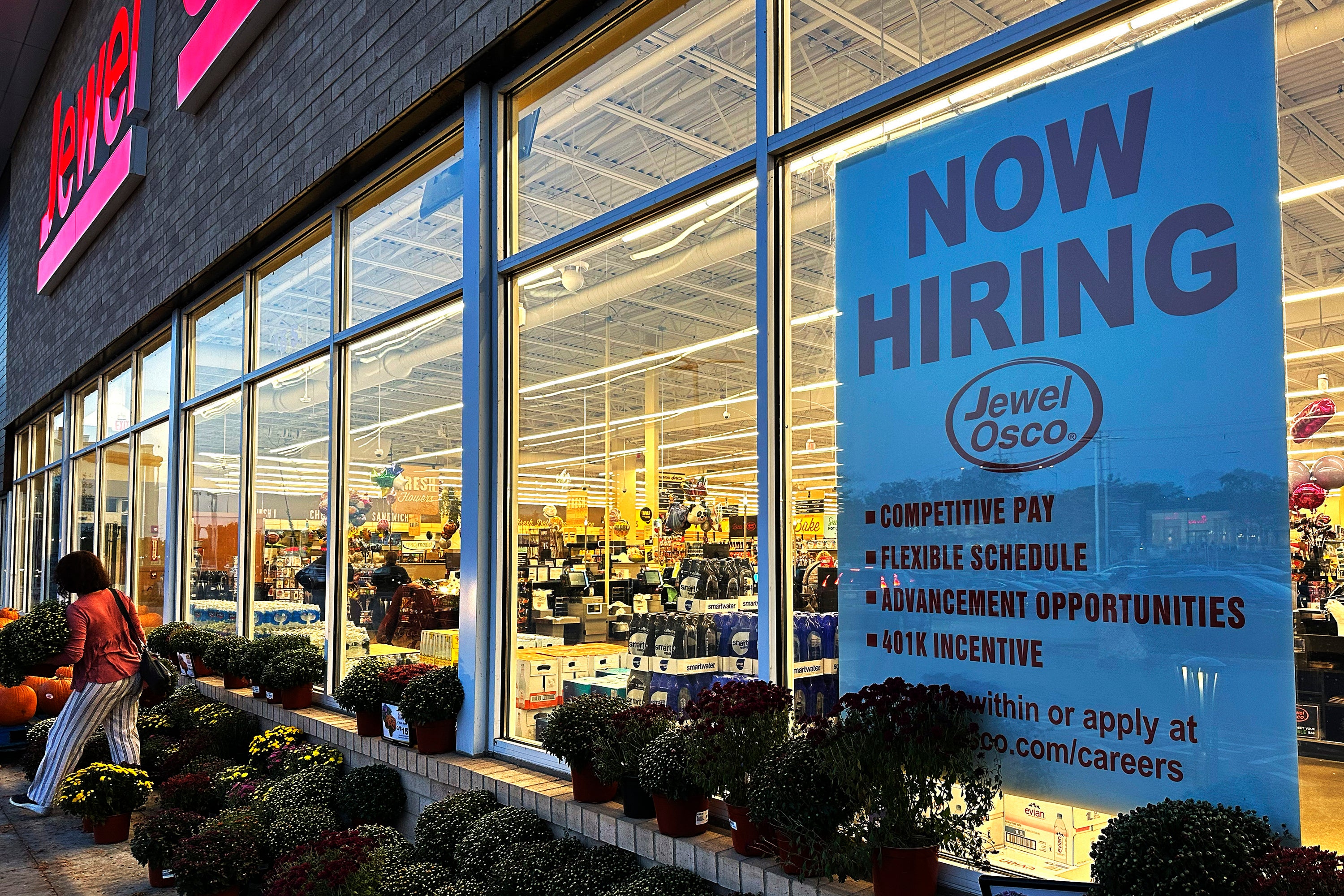Economists predict US inflation will keep cooling and the economy can avoid a recession
A survey shows most business economists think the U.S. economy could avoid a recession next year, even if the job market ends up weakening under pressure brought by high interest rates

Your support helps us to tell the story
From reproductive rights to climate change to Big Tech, The Independent is on the ground when the story is developing. Whether it's investigating the financials of Elon Musk's pro-Trump PAC or producing our latest documentary, 'The A Word', which shines a light on the American women fighting for reproductive rights, we know how important it is to parse out the facts from the messaging.
At such a critical moment in US history, we need reporters on the ground. Your donation allows us to keep sending journalists to speak to both sides of the story.
The Independent is trusted by Americans across the entire political spectrum. And unlike many other quality news outlets, we choose not to lock Americans out of our reporting and analysis with paywalls. We believe quality journalism should be available to everyone, paid for by those who can afford it.
Your support makes all the difference.Most business economists think the U.S. economy could avoid a recession next year, even if the job market ends up weakening under the weight of high interest rates, according to a survey released Monday.
Only 24% of economists surveyed by the National Association for Business Economics said they see a recession in 2024 as more likely than not. The 38 surveyed economists come from such organizations as Morgan Stanley, the University of Arkansas and Nationwide.
Such predictions imply the belief that the Federal Reserve can pull off the delicate balancing act of slowing the economy just enough through high interest rates to get inflation under control, without snuffing out its growth completely.
“While most respondents expect an uptick in the unemployment rate going forward, a majority anticipates that the rate will not exceed 5%,” Ellen Zentner, president of the association and chief U.S. economist at Morgan Stanley, said in a statement.
The Federal Reserve has raised its main interest rate above 5.25% to the highest level since early in the millennium, up from virtually zero early last year.
High rates work to slow inflation by making borrowing more expensive and hurting prices for stocks and other investments. The combination typically slows spending and starves inflation of its fuel. So far, the job market has remained remarkably solid despite high interest rates, and the unemployment rate sat at a low 3.9% in October.
Most of the surveyed economists expect inflation to continue to slow in 2024, though many say it may not get all the way down to the Federal Reserve's target of 2% until the following year.
Of course, economists are only expecting price increases to slow, not to reverse, which is what it would take for prices for groceries, haircuts and other things to return to where they were before inflation took off during 2021.
The median forecast of the surveyed economists called for the consumer price index to be 2.4% higher in the final three months of 2024 from a year earlier. That would be milder than the inflation of more than 9% that U.S. households suffered during the summer of 2022.
Expectations are split among economists on when the Federal Reserve could begin cutting interest rates, something that can relieve pressure on the economy and act like steroids for financial markets. Some economists think the first cut could arrive during the first three months of 2024, while roughly a quarter of the survey's respondents think it won’t happen until the last three months of the year.